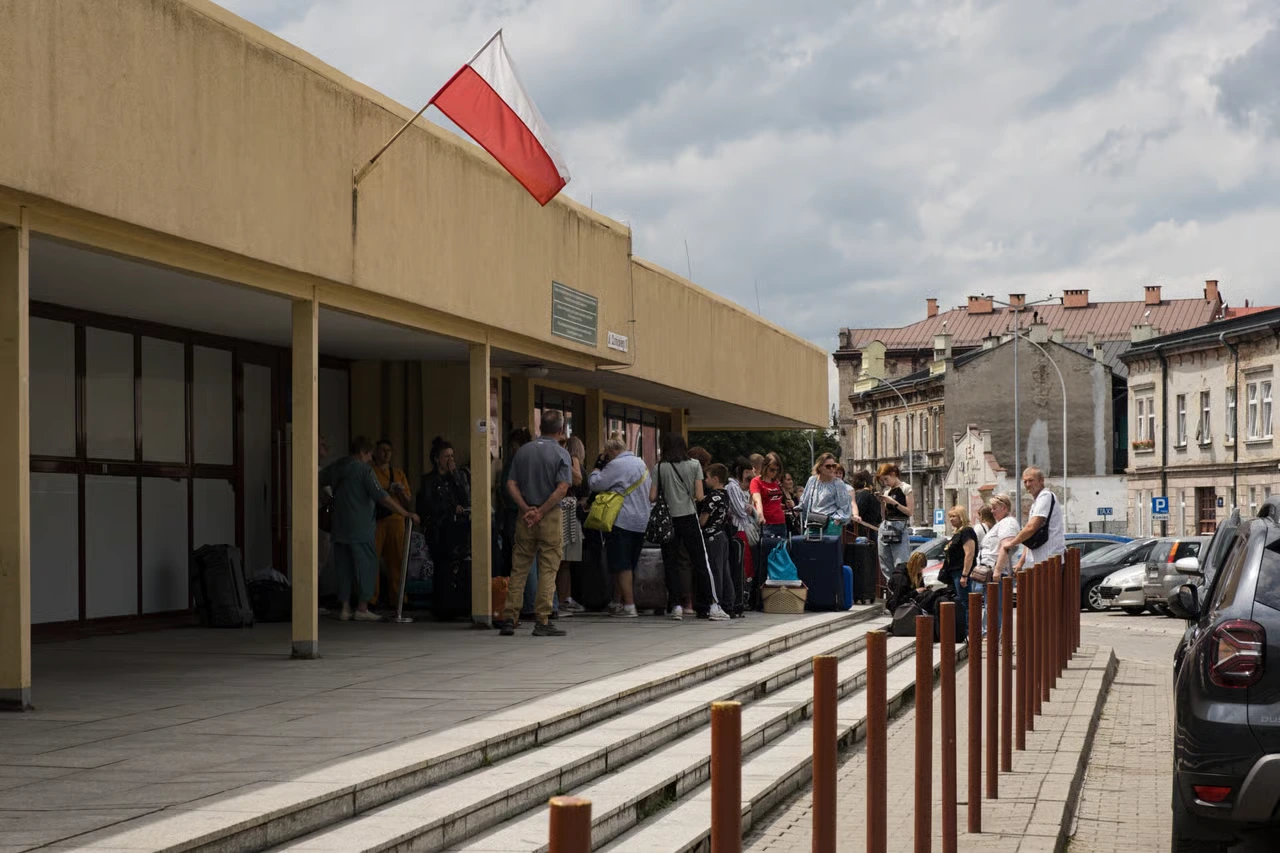According to Politico, the sharp increase in the number of Ukrainian men arriving in Germany and Poland has sparked concern in both countries. Politicians warn that if the trend continues, public support for Kyiv could weaken — especially when it comes to military assistance.
A New Wave — and New Tensions
Following Ukraine’s decision in late August to relax exit restrictions for men aged 18 to 22, both Poland and Germany have seen a noticeable influx of young Ukrainians.
According to data from the Polish border guard, around 45,000 men in this age group crossed the border between the beginning of the year and the end of August. After the restrictions were lifted, that number jumped to 98,500 within just two months — roughly 1,600 people per day.
Many of them moved further west to Germany. Data from the German Interior Ministry shows that while only 19 young men per week entered Germany in mid-August, by October that number had surged to between 1,400 and 1,800 weekly.
Concerns in Berlin and Warsaw
In Germany, the issue has already become political. Members of Chancellor Friedrich Merz’s governing coalition fear that the public might start viewing the arrivals as draft evaders.
“We have no interest in young Ukrainian men spending their time in Germany instead of defending their country,” said Jürgen Hardt, a senior foreign policy lawmaker from Merz’s conservative bloc, in an interview with Politico.
In Poland, the reaction was even stronger. The far-right Confederation party issued a statement declaring: “Poland cannot continue to be a refuge for thousands of men who should be defending their homeland instead of burdening Polish taxpayers with the cost of their desertion.”
Why Kyiv Changed the Rules
Volodymyr Zelenskyy’s decision to allow men under 25 to travel abroad was initially intended to stabilize Ukraine’s recruitment system. Until then, men aged 18 to 60 had been prohibited from leaving the country. The new regulations permit young men to cross the border freely without the risk of criminal prosecution.
The idea was to let those already abroad return home without fear of being trapped inside the country — with the hope that they might later agree to serve once they turn 25.
Another goal was to discourage parents from taking their sons abroad at the ages of 16 or 17, a trend that authorities had flagged. Announcing the change, Zelenskyy said:
“If we want boys to stay in Ukraine, we need them to finish school here and for their parents not to take them away too early. Otherwise, they might lose their connection to the country.”
Rising Tension Over Social Benefits
According to Eurostat, Germany and Poland host more than half of all Ukrainians under EU temporary protection — about 1.2 million in Germany and nearly 1 million in Poland.
Although Ukrainians make up more than 6 percent of Poland’s workforce and contribute significantly to economic growth, right-wing politicians increasingly argue that they receive too many social benefits. Nationalist President Karol Nawrocki recently vetoed a bill extending aid to Ukrainians, insisting that only those who work and pay taxes in Poland should receive benefits.
In Germany, similar demands are coming from the far-right Alternative for Germany (AfD), which now leads national polls. The AfD calls for an end to welfare payments to Ukrainians and opposes military assistance to Kyiv — even though Germany is Ukraine’s largest donor after the United States.
According to Germany’s Federal Employment Agency, around 490,000 working-age Ukrainians in the country currently receive long-term unemployment benefits.
Against this backdrop, Merz’s party is drafting a bill that would restrict access to such benefits. However, coalition partners from the Social Democratic Party (SPD) are urging caution.
“Many people have mixed feelings when they see young Ukrainian men receiving support, but we don’t believe hasty action is necessary,” said SPD lawmaker Sebastian Fiedler.
He emphasized that Germany remains committed to supporting Ukraine “to the fullest extent possible,” but will not interfere in determining “whom Ukraine sends to the front and whom it does not.”
Wait and See
Some members of the German government prefer to hold off on any decisions. Interior Minister Alexander Dobrindt said through a spokesperson that more data is needed:
“We may be witnessing only an initial surge in migration following Ukraine’s new regulations. The number of young men seeking refuge could decline again soon.”
The national debate was sparked by Bavarian Prime Minister Markus Söder, leader of the Christian Social Union (CSU), who proposed tightening the EU’s Temporary Protection Directive if Kyiv fails to reduce the influx voluntarily.
“Our solidarity with Ukraine remains unchanged,” Söder stressed. “But it requires clear rules and shared responsibility.”
This article was prepared based on materials published by Politico. The author does not claim authorship of the original text but presents their interpretation of the content for informational purposes.
The original article can be found at the following link: Politico.
All rights to the original text belong to Politico.


















